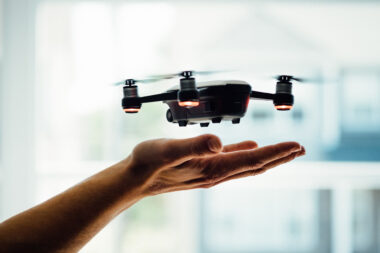Introduction
Access to reliable healthcare services is a fundamental human right, yet many regions worldwide face significant challenges in delivering healthcare to remote and underserved populations. Limited infrastructure, unreliable power supply, and resource constraints hinder the provision of adequate medical care in these areas. However, the convergence of solar energy and medical technology has opened up new possibilities for portable and sustainable healthcare solutions.
Solar-powered medical devices have emerged as innovative tools that leverage renewable energy to address the unique challenges faced by healthcare systems. By harnessing the sun’s power, these devices provide a reliable and environmentally friendly energy source, enabling healthcare professionals to deliver essential services in even the most remote and resource-limited settings.
The need for portable and sustainable healthcare solutions
Access to healthcare is a fundamental human right, yet millions worldwide need more adequate medical services due to various challenges, including remote locations, limited infrastructure, and an unreliable power supply. Portable and sustainable healthcare solutions are crucial in such settings to bridge the healthcare gap and provide essential medical services. This need has led to the emergence of solar-powered medical devices as innovative solutions to address these challenges.
Portable healthcare solutions are essential for reaching populations in remote and underserved areas. These devices can operate independently of traditional power grids by incorporating solar energy, making them suitable for off-grid and resource-limited settings. Solar-powered medical devices can be easily transported and deployed, enabling healthcare professionals to deliver critical care wherever it is needed most.
Additionally, the sustainability aspect of solar-powered healthcare solutions cannot be overstated. By utilizing renewable energy, these devices reduce dependence on fossil fuels and contribute to a greener and cleaner environment. They eliminate the need for costly and environmentally harmful alternatives such as diesel generators, making healthcare services more sustainable and environmentally friendly.
Moreover, portable and sustainable healthcare solutions become even more critical in disaster-prone regions or humanitarian crises, where conventional healthcare infrastructure may be compromised. Solar-powered medical devices ensure the continuity of healthcare services, even without reliable electricity.
Solar-Powered Medical Devices: Applications and Benefits
Solar-powered medical devices have revolutionized healthcare delivery by leveraging renewable energy to address the unique challenges healthcare systems face worldwide. These devices offer various applications and benefits, making them invaluable tools for improving healthcare access and delivery.
Solar-Powered Vaccine Refrigerators: Maintaining proper temperature control is crucial for storing vaccines. Solar-powered vaccine refrigerators ensure the integrity of vaccines in remote and off-grid areas where traditional electricity supplies may be unreliable. These devices use solar panels to generate and store energy, providing a sustainable and continuous power source for refrigeration.
Portable Diagnostic Devices: Solar energy powers mobile diagnostic devices such as point-of-care testing equipment, ultrasound machines, and ophthalmic screening tools. These devices enable healthcare providers to perform diagnostics and screenings in resource-limited areas without conventional power sources. Solar-powered diagnostics improve early detection and diagnosis, facilitating timely medical interventions.
Solar-Powered Lighting and Sterilization: Solar-powered lighting systems are essential for healthcare facilities in areas with limited access to electricity. They provide
- Adequate illumination for medical procedures,
- Improving patient care and safety. Solar-powered autoclaves and sterilization units offer a reliable and sustainable solution for sterilizing medical equipment,
- Reducing the risk of infections.
Telemedicine and Connectivity: Solar-powered devices facilitate telemedicine services, enabling remote consultations, medical advice, and patient monitoring. Solar-powered communication devices and telehealth platforms bridge patients and healthcare providers, particularly in remote and underserved areas. These devices facilitate real-time communication, data transmission, and remote diagnostics, enhancing healthcare access and reducing geographical barriers.
Portable Power Banks and Chargers: Solar-powered power banks and chargers provide a portable and sustainable energy source for medical devices in the field. Healthcare professionals can recharge their equipment and instruments using solar energy, ensuring uninterrupted operation and reducing reliance on grid electricity or disposable batteries.
The benefits of solar-powered medical devices are numerous.
- Enhanced Mobility and Portability: Solar-powered devices are lightweight, compact, and easy to transport, enabling healthcare professionals to deliver care in remote and challenging environments.
- Reliable and Sustainable Power Source: Solar energy is renewable and abundantly available, ensuring a continuous and sustainable power supply for medical devices, even in areas with unreliable electricity grids.
- Cost Savings: Solar-powered devices reduce reliance on fossil fuels and conventional power sources, resulting in long-term cost savings for healthcare facilities and organizations.
- Environmental Benefits: Solar energy is clean and environmentally friendly, contributing to reduced carbon emissions and greener healthcare infrastructure.
- Improved Healthcare Access: Solar-powered medical devices overcome infrastructure limitations, reaching populations in remote and underserved areas and providing essential healthcare services where they are needed most.
In conclusion, solar-powered medical devices offer many applications and benefits, revolutionizing healthcare delivery in remote, off-grid, and resource-limited settings. By harnessing the sun’s power, these devices improve healthcare access, enhance diagnostics, ensure vaccine integrity, and provide sustainable and reliable healthcare solutions, ultimately improving patient outcomes and advancing global healthcare equity.
Research and technological advancements
- Energy Storage Solutions: Efficient energy storage systems, such as advanced batteries and supercapacitors, ensure a continuous power supply for solar-powered medical devices. Ongoing research focuses on developing high-capacity and long-lasting energy storage solutions to optimize the performance of these devices.
- Energy Harvesting Technologies: Innovations in energy harvesting technologies, such as flexible solar panels, wearable solar cells, and self-powering sensors, aim to maximize solar energy capture and utilization. These advancements enhance the efficiency and portability of solar-powered medical devices, expanding their applications and potential impact.
- Data Management and Connectivity: Integrating solar-powered medical devices with data management and connectivity systems enables real-time monitoring, remote diagnostics, and data analytics. This integration enhances healthcare delivery, facilitates disease surveillance, and allows efficient resource allocation in healthcare settings.
Challenges and Future Perspectives
- Cost-effectiveness: Solar-powered medical devices offer long-term cost savings, but their initial acquisition and maintenance costs can hinder implementation, particularly in resource-constrained settings. Further research and technological advancements are needed to make these devices more affordable and accessible.
- Training and Education: Healthcare providers and technicians must be trained to effectively utilize and maintain solar-powered medical devices. Capacity-building programs ensure these devices’ proper use, maintenance, and troubleshooting.
- Regulatory Frameworks and Standards: Developing regulatory frameworks and standards specific to solar-powered medical devices is crucial to ensuring their safety, performance, and interoperability. Collaboration between regulatory bodies, researchers, and manufacturers is essential to shaping the future of this field.
Conclusion
Solar-powered medical devices have the potential to revolutionize healthcare delivery, particularly in remote, underserved, and resource-constrained areas. Integrating solar energy into healthcare infrastructure enhances the portability, sustainability, and accessibility of healthcare services. Ongoing research, technological advancements, and collaborations between academia, industry, and healthcare providers are key to unlocking the full potential of solar-powered medical devices. By harnessing the sun’s power, we can create a brighter and healthier future where quality healthcare reaches every corner of the world.



